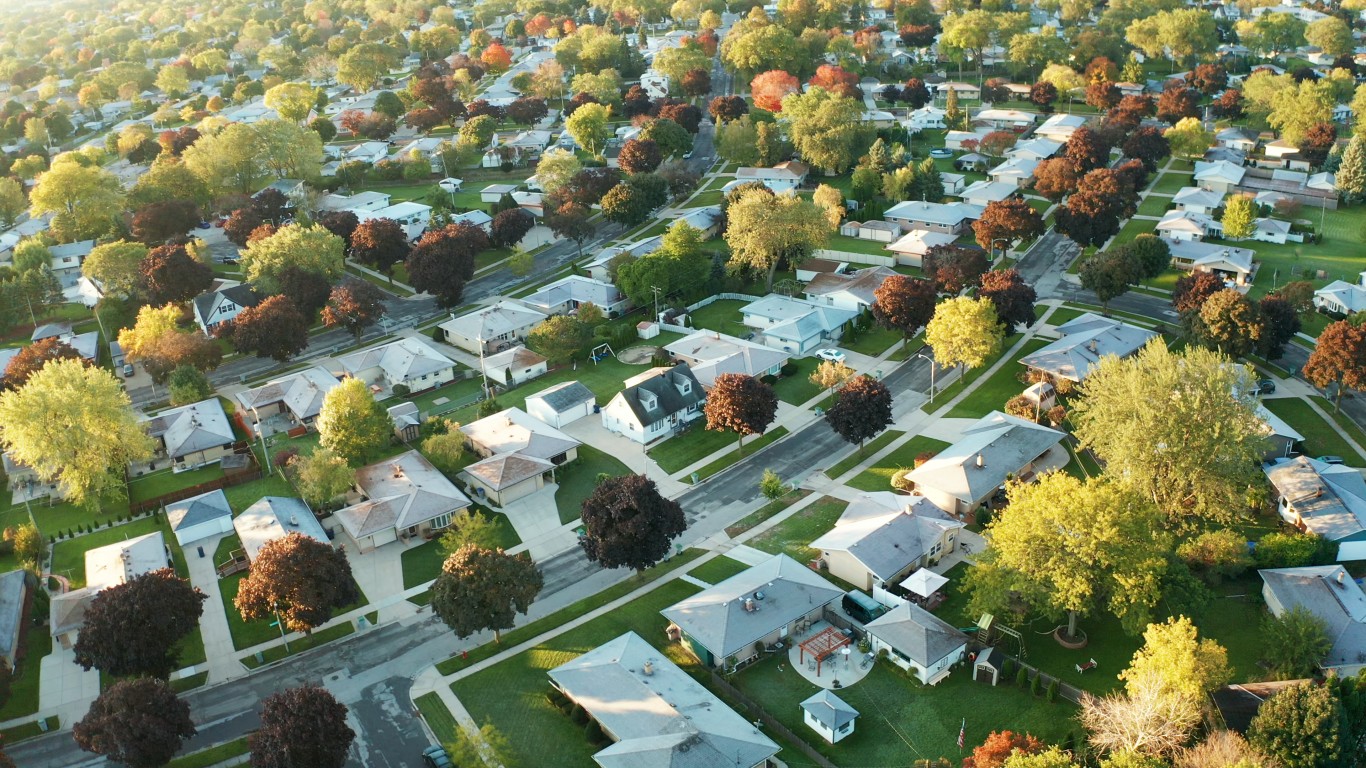
The share of home mortgage loan payments that are 30 days or more past due jumped to 6.1% in April, ending a streak of 27 months of declining year-over-year delinquencies. Month over month, the overall delinquency rate increased by 2.5 percentage points, the same as the year-over-year increase. The foreclosure inventory rate fell from 0.4% to 0.3% year over year, the lowest rate since at least January 1999.
The foreclosure rate remains below the average pre-crisis level of 0.6%. Since March of 2018, the overall delinquency rate in each month has been lower than it was in the pre-housing-crisis period between 2000 and 2006, when the average was 4.7%.
CoreLogic reported the data Tuesday morning in its Loan Performance Insights report for April. Early-stage delinquencies, defined as 30 to 59 days past due, rose by 1.5 points year over year to 4.2% year over year in the month. The share of mortgages that were 60 to 89 days past due in April was 0.7%, up by 0.1 points compared with last year’s rate. According to CoreLogic, measuring early-stage delinquency rates is important for analyzing the health of the mortgage market.
The share of mortgages that transitioned from current to 30 days past due reached 3.4% in April, a jump of 2.7 percentage points compared to a year ago. This April transition rate is the highest CoreLogic has recorded since 1999. The prior peak was 2.0% recorded in November 2008 at the beginning of the housing crisis.
Serious delinquency rates (defined as 90 days or more past due) fell from 1.3% in April 2019 to 1.2% this past April, the fifth consecutive month the rate has been at this low a level since June 2000. Serious delinquency rates declined in 48 states during the month, with only Alaska and Colorado posting small gains.
Frank Martell, president and CEO of CoreLogic, added:
Despite the scale and suddenness of the pandemic, mortgage delinquency has yet to emerge as a major issue, thanks to government COVID-19 relief programs and other housing finance industry efforts. As the true impact of the economic shutdown during the second quarter of 2020 becomes clearer, we can expect to see a rise in delinquencies in the next 12-18 months — especially as forbearance periods under the CARES Act come to a close.
Mortgage rates on a 30-year fixed-rate loan were 2.93% on Tuesday, slightly higher than last week’s 52-week low of 2.91%.
Among the nation’s largest cities, Miami (11.5%) and New York (about 10.2%) have the highest rate of mortgages at least 30 days past due. Denver had the lowest rate at 3.7%.
The states with the highest rates of mortgages at least 30 days past due are New York, Louisiana, New Jersey, Mississippi and Connecticut, all with rates of at least 8%, compared to the national average of 6.1%. The states with the lowest rates of mortgages at least 30 days past due are South Dakota, Idaho, Wisconsin, North Dakota and Iowa, all with rates of less than 4%.
In 20 Years, I Haven’t Seen A Cash Back Card This Good
After two decades of reviewing financial products I haven’t seen anything like this. Credit card companies are at war, handing out free rewards and benefits to win the best customers.
A good cash back card can be worth thousands of dollars a year in free money, not to mention other perks like travel, insurance, and access to fancy lounges.
Our top pick today pays up to 5% cash back, a $200 bonus on top, and $0 annual fee. Click here to apply before they stop offering rewards this generous.
Flywheel Publishing has partnered with CardRatings for our coverage of credit card products. Flywheel Publishing and CardRatings may receive a commission from card issuers.
Thank you for reading! Have some feedback for us?
Contact the 24/7 Wall St. editorial team.


